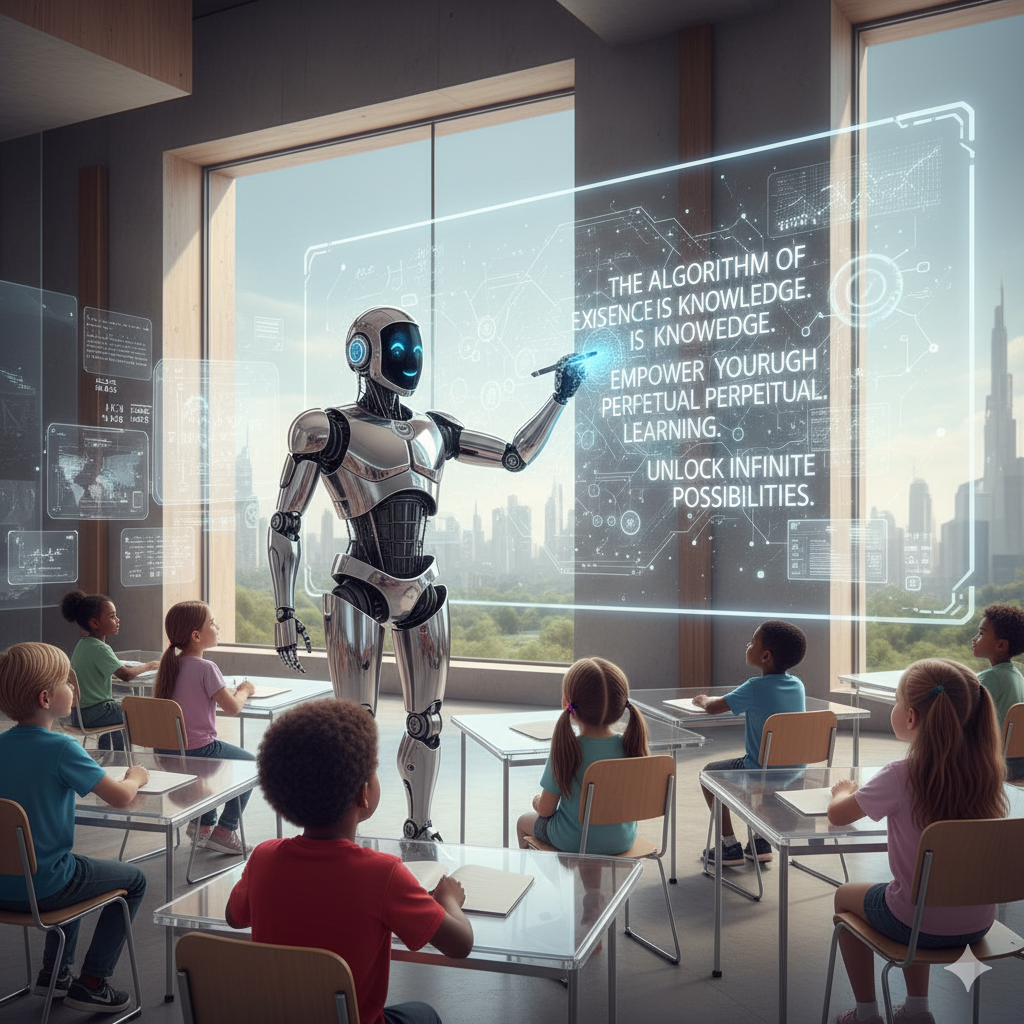Every teacher knows this moment: A student struggling with Newton's laws while their classmate breezes through. The traditional response? "Read it again." But what if the problem isn't the student's effort, it's that the textbook speaks only one language when learners need five?
Google Research just dropped something fascinating: Learn Your Way, an AI system that transforms static textbooks into dynamic, personalized learning experiences. The results? Students showed 11% better retention after just one study session.
But here's the use case that caught my attention, one that was impossible at scale until now:
The Multi-Modal Bridge for Struggling Learners
Imagine Lars, a 16-year-old apprentice at Siemens who's passionate about Bayern Munich but struggles with electrical engineering theory. Traditional textbooks explain Ohm's Law the same way to everyone. Learn Your Way automatically:
- Re-levels the content to his comprehension level
- Replaces generic examples with football-themed ones (imagine learning resistance through the physics of Neuer's goalkeeper gloves gripping a wet ball)
- Generates an audio lesson in conversational German
- Creates visual mind maps showing connections between circuit components
- Produces practice scenarios from actual industrial applications
This isn't just translation, it's transformation. The same concept delivered through five different cognitive doorways, personalized to what resonates with each learner.
What This Means for European Organizations
The implications are massive for our dual education systems and industry training:
- Ausbildung Revolution: Germany's apprenticeship programs could personalize technical training to each apprentice's background, explaining CNC programming through gaming logic for Gen Z trainees or through traditional craftsmanship analogies for career changers
- Multilingual Workforce Training: A Portuguese engineer at Volkswagen could learn new assembly processes with examples from Portuguese automotive traditions, while their Turkish colleague gets culturally relevant analogies, all from the same source material
- Compliance Training That Sticks: GDPR training that adapts to whether you're a developer (code examples), marketer (campaign scenarios), or HR professional (employee data cases)
Real-World Application: The BMW Academy Case
Imagine BMW's production line training:
- The 19-year-old gamer learns quality control through "debugging" metaphors
- The 45-year-old career changer from hospitality learns through "customer service excellence" parallels
- The mechanical engineering graduate gets pure technical specifications
- All learning the exact same procedures, with 11% better retention
What now
If you're in L&D or education technology:
- Identify your most diverse learner populations (especially in technical training)
- Map cultural and generational learning preferences in your workforce
- Pilot AI-powered content transformation with safety-critical training first (where retention matters most)
- Consider how this could reduce training time in high-turnover positions
- Explore partnerships with vocational schools testing similar approaches
The European Advantage
With our strong tradition of apprenticeships and lifelong learning, Europe is uniquely positioned to lead this transformation. We've always known that a master craftsman teaches differently than a university professor. Now we can scale that personalized mastery.
The fascinating part isn't just the technology, it's that students wanted to use it. 93% preferred AI-adapted learning versus 67% for traditional digital content.
We're witnessing the shift from industrial education to artisanal learning—at industrial scale.
The question for European businesses isn't whether to adopt this, but whether our competitors in Silicon Valley or Shenzhen will get there first.
Read here the full Google Research article

